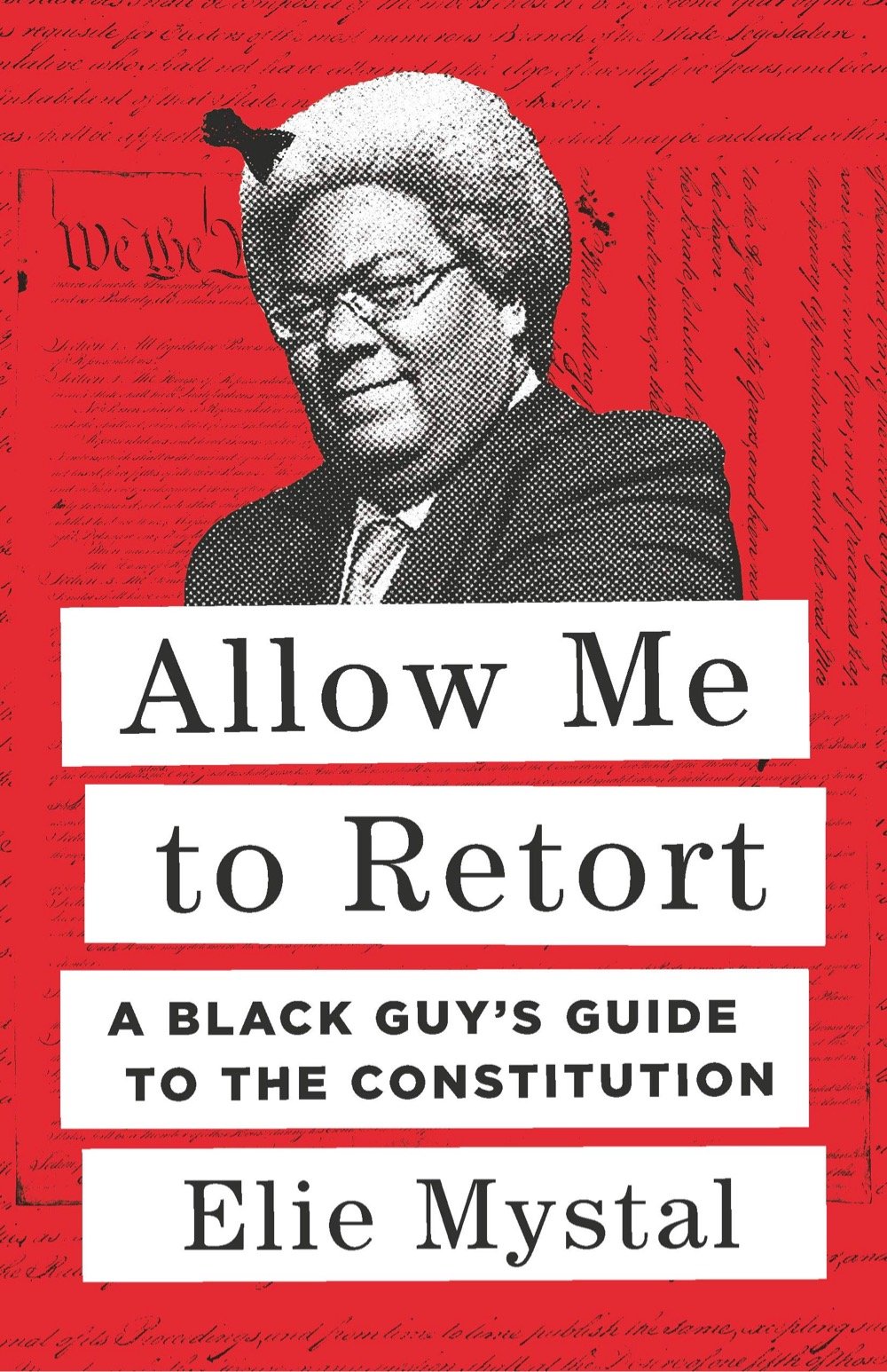A Black Guy’s Guide to the Constitution
That’s the subtitle of a new book by Elie Mystal — the full title is Allow Me to Retort: A Black Guy’s Guide to the Constitution. From the Kirkus review:
Mystal, an analyst at MSNBC and legal editor for the Nation, reads the Constitution from the point of view of a Black man keenly aware of the document’s origins in a slaveholding nation. “It is a document designed to create a society of enduring white male dominance,” he writes, “hastily edited in the margins to allow for what basic political rights white men could be convinced to share.” As the author abundantly demonstrates, people of color and women have always been afterthoughts, and recent conservative applications of constitutional doctrine have been meant to further suppress the rights of those groups. “The law is not science,” writes the author, “it’s jazz. It’s a series of iterations based off a few consistent beats.” Conservative originalists know this, but they hide their prejudices behind the notion that the text is immutable. Mystal shows how there’s plenty of room for change if one follows a rule hidden in plain sight: “There’s no objective reason that the Ninth Amendment should be applied to the states any less robustly than the Second Amendment. The only difference is that the rights and privileges that the Ninth Amendment protects weren’t on the original white supremacist, noninclusive list.” Article by article, amendment by amendment, Mystal takes down that original list and offers notes on how it might be improved as a set of laws that protect us all, largely by rejecting conservative interpretations of rights enumerated and otherwise.
The Ninth Amendment, in case you were wondering, reads: “The enumeration in the Constitution, of certain rights, shall not be construed to deny or disparage others retained by the people.” So basically, the Bill of Rights (and subsequent Constitutional amendments) are not the only rights Americans have.






Stay Connected